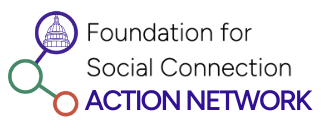By Boaz Gaon, Founder & CEO of Wisdo Health
It’s a staggering statistic: 58% of Americans today experience loneliness and isolation. Loneliness is quite literally at epidemic levels.
According to a recent report by Cigna, “…examining the different issues affecting the one in five adults in the U.S. who suffer from a mental health condition, they share a consistent part of the pathology: loneliness.”
U.S. Surgeon General Dr. Vivek Murthy describes this as a “Social Recession,” in which Americans will venture more and more into loneliness and isolation instead of reaching out to meaningful, motivational and self-care-raising connections. In Medicare spending alone the cost of spiraling loneliness has been estimated at $6.78B annually; the cost of loneliness at the workplace has been estimated at $154B annually.
Professor Dan Russell, the co-creator of the UCLA-3 loneliness scale and a Wisdo scientific advisory board member, classified loneliness as a key indicator of social health. Numerous subsequent studies have only strengthened the link between loneliness, decreased mental and physical health, and increased mortality risk.
Despite these harrowing statistics, there is reason to hope for a reversal of these trends: For the first time in two decades, we are seeing effective digital solutions that work at scale. Healthcare today is moving from diagnosis to treatment, and not a moment too soon.
But in order to address loneliness, it must be accurately defined. So, what exactly are loneliness and social Health?
Defining Social Health and How to Improve It
Social health is defined as our ability to interact and form meaningful relationships with others. In action, social health is experienced by how comfortably one adapts to social situations, and sustains challenges to health and wellbeing (the latter is otherwise known as resilience) without having these events severely affect mental health, physical health, and engagement in care.
On the other end of the social health spectrum, loneliness is the subjective gap between the meaningful relationships that one desires and existing relationships that, in comparison, are experienced as unsatisfactory and lacking, in the words of Dr. Vivek Murthy. Loneliness is a gap that we feel we cannot close, and that grows bigger the longer we are alone.
To use a metaphor, social health is to our mental health what our skin is to our inner body: a protective layer without which we are infinitely more vulnerable and at risk.
Professor Russell’s research defines four provisions that need to be addressed to improve social health and address loneliness and social isolation:
- Social integration, or having peers that you share lived experiences or aspirations with, thus increasing a sense of belonging;
- Emotional support, where you feel seen, heard, and understood;
- Reassurance of worth, where someone you share a deep connection with proactively shows you your value;
- Reliable alliance, or the opportunity to give others in a meaningful way that’s aligned with your abilities and limitations.
A Key to Reversing Loneliness: A Sense of Community
Community-driven support takes place when people with shared lived experiences offer encouragement and companionship to those going through similar life events.
Whether people are battling chronic illness or depression, navigating the stressful challenges of working remotely, or caring for a loved one, community members must be given space to share their lived experiences, with the end goal of increasing social connectedness, mental and physical health. They are given the opportunity to express vulnerability without the fear of judgment, while internalizing the possibility of an improved near or distant future.
Furthermore, particularly healthy communities provide members with opportunities to help others, addressing two of the four provisions for Social Health: reassurance of worth and reliable alliance.Research consistently demonstrates that a well-designed support community can facilitate long-term improvements with mental health issues, reduce healthcare costs, promote a sense of belonging, enhance well-being, and increase self-esteem. The majority of people today who seek meaningful connections on social media platforms like Facebook, are unfortunately proven again and again to come away with increased feelings of isolation and anxiety. Clearly, these platforms are not the answer.
The question is can we build a safe and scalable community-driven social health platform that individuals experiencing social isolation and loneliness want to join? Can we create a space for others to build healthy and meaningful relationships with peers that share lived experiences, stay engaged for long periods of time (12+ months), and have the opportunity to help others? Can we improve wellbeing with results that are tracked, measured, and connected to an improved care experience like reduced medical costs, and improved mental and physical health?
At Wisdo Health, we have taken on this challenge. For the past 4 years, we have been working on developing and testing a science-driven social health platform that includes health insurance leaders, employers, and government agencies mindful of the urgency involved.
With over 1 million users to date, over 10M meaningful connections created and several scientific studies behind us, we are excited to share that YES, it can be done and it can be done at scale. Learn more about our approach at www.wisdo.com
Boaz Gaon
Founder & CEO
Wisdo Health
Wisdo is an award-winning social health and clinical referral platform that addresses the adverse consequences of social isolation and loneliness on the mental and physical health of 124 million Americans. Research shows that Wisdo results in $1,900+ in annual medical cost savings, a 37% reduction in depression, a 34% increase in the number of healthy days experienced by our members, and an 80% retention rate on month 12. More than 1 million adults have joined the Wisdo community, where they realized measurable improvements in their health through community-driven social support, professionally moderated group sessions, and when appropriate clinical referrals based on predictive analytics. Learn more at www.wisdo.com

